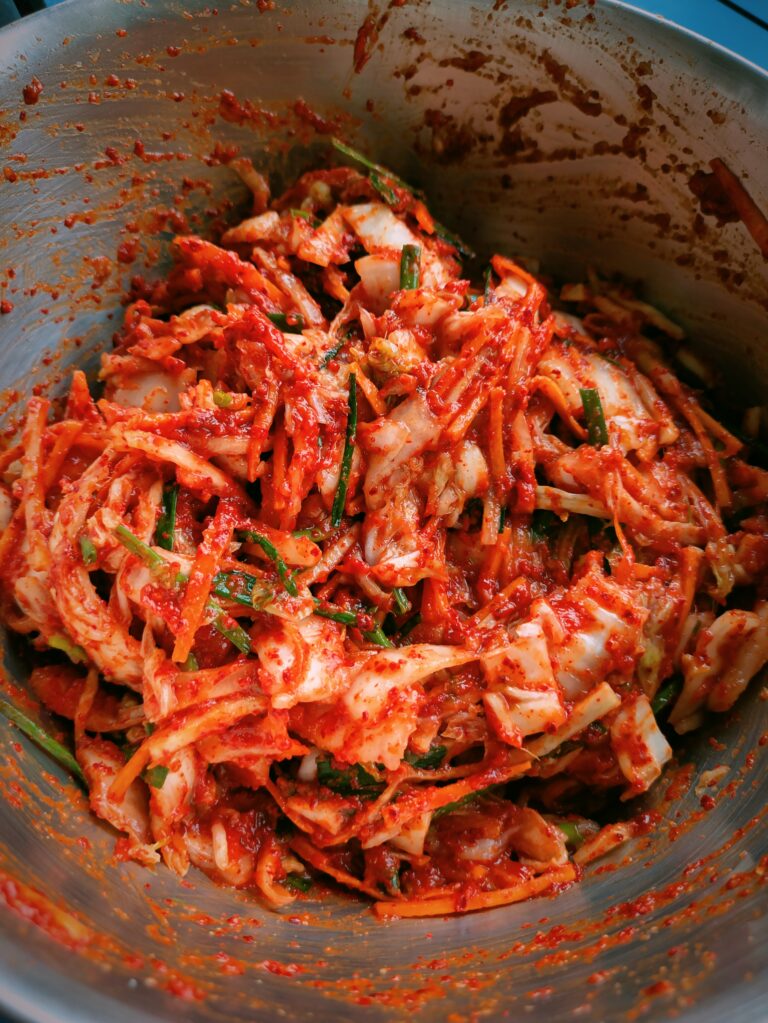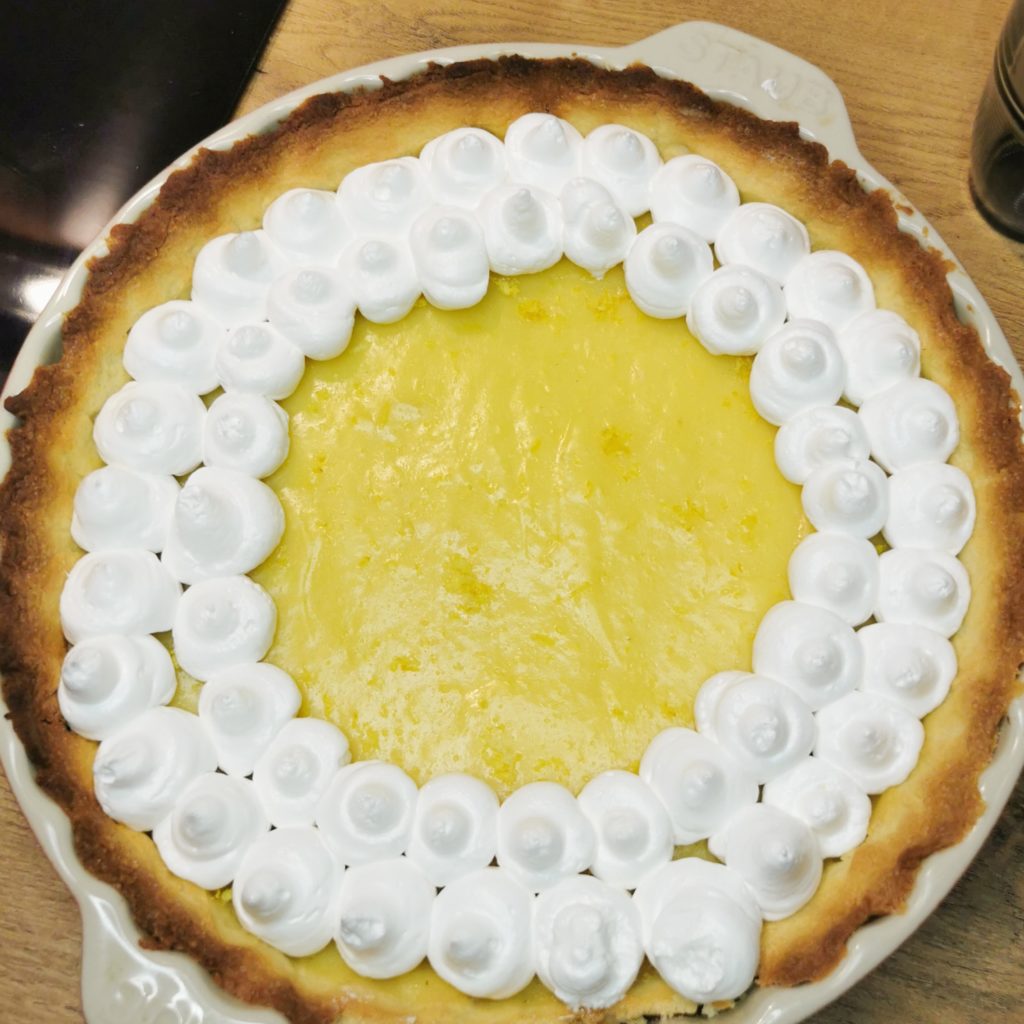Prep Time:
30 minutes to chop everything and wash the cabbage
Cook Time:
10 minutes (for rice paste)
Fermentation Time:
2–3 days (room temperature), then refrigerate
Total Time:
40 minutes (active) + 2–3 days (fermentation)
Yield:
About 1.5 liters (1 large jar or 2 medium jars) as per choice
Servings:
Approximately 20–25 small servings (as a side dish)
My Go-To Kimchi Recipe – Simple, Flavorful, Adapted for Everyday Cooking
I first discovered kimchi in an Asian grocery store here in France. Coming from Nepal—where fermented foods like gundruk, sinkhi, and spicy pickles are part of daily life—this bright red jar of cabbage felt both exciting and oddly familiar.
After trying it once, I was hooked. Naturally, I wanted to make it myself. Over time, I’ve developed a kimchi recipe that respects the traditional Korean method but works with ingredients I can find locally. It’s quick, easy, and packed with flavor—now an essential part of my everyday cooking.
🌶️ What Makes This Recipe Special
This isn’t a shortcut version, but it’s authentic in spirit and adapted for real life. I use regular french pear instead of sugar or asian pear, cornstarch when I don’t have rice flour, and local produce from French markets.
Fermentation connects cultures—and kimchi has become my delicious bridge between Korea, Nepal, and France.
🧂 My Go-To Kimchi Recipe (No Sugar Needed)
🛒 Ingredients:
1 medium napa cabbage (or Chinese cabbage)
1/4 cup coarse sea salt
Water (for soaking cabbage)
1-2 medium carrot, julienned
3–4 spring onions, chopped
1 small white radish or daikon, julienned
1 ripe pear or apple (natural sweetener)
4–5 cloves of garlic, minced
1 tablespoon grated ginger
2–3 tablespoons Korean chili flakes (gochugaru), adjust to taste
1 tablespoon fish sauce (or soy sauce for vegetarian version)
1 tablespoon rice flour (or cornstarch)
(Optional: 1 tsp sugar if your pear isn’t sweet enough)
🍳 Instructions:
1. Salt the cabbage
Chop the cabbage into large bite-sized pieces.
Soak it in a bowl with sea salt and water for 1.5 to 2 hours, tossing every 30 minutes.
Rinse well under cold water 2–3 times. Drain thoroughly.
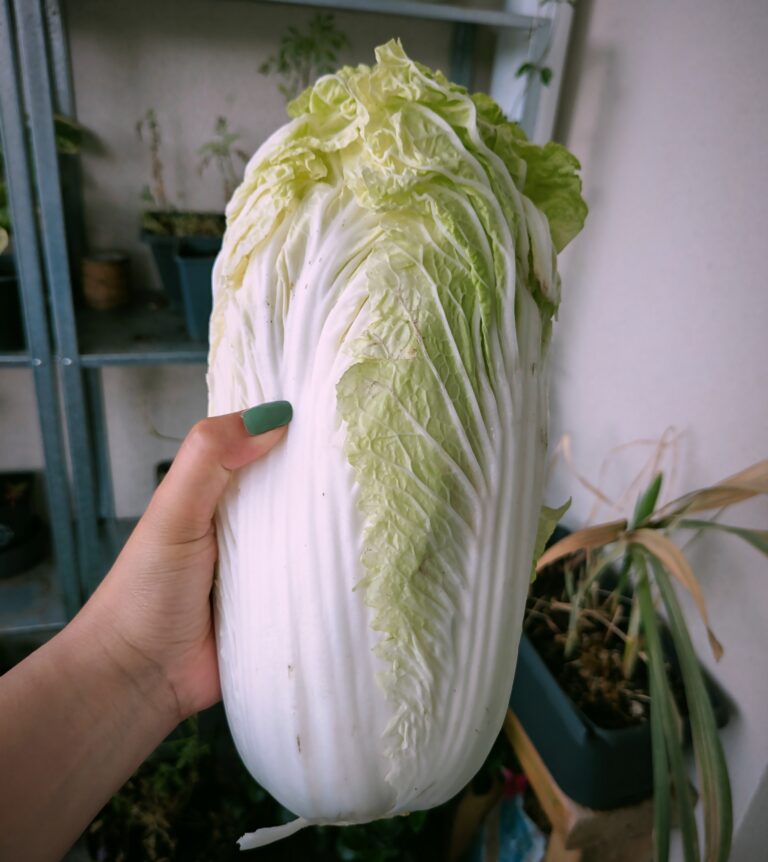
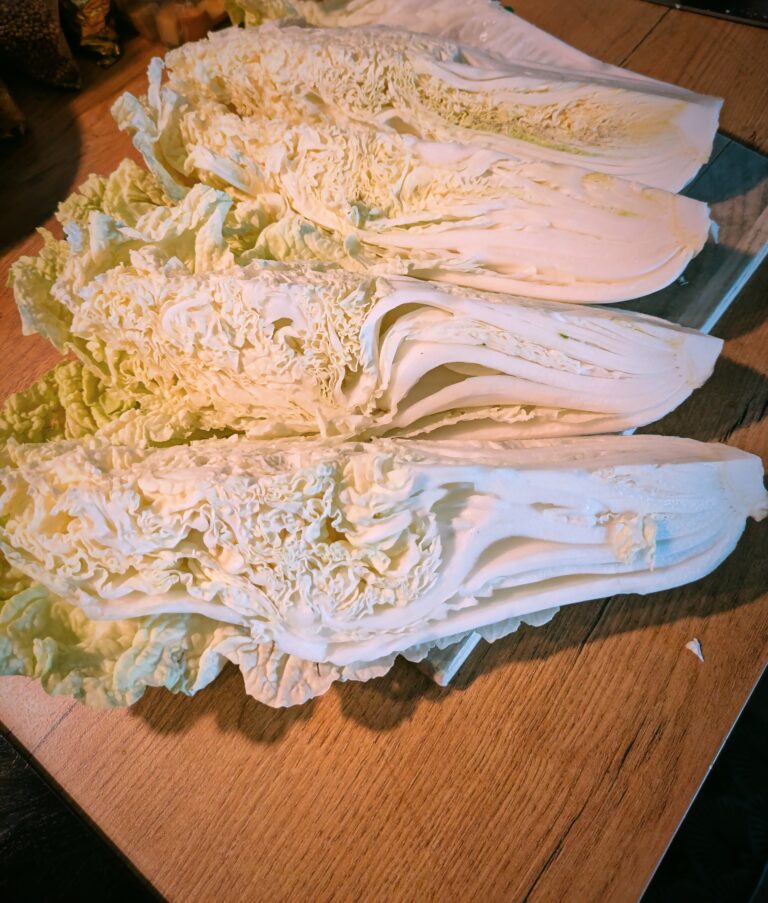
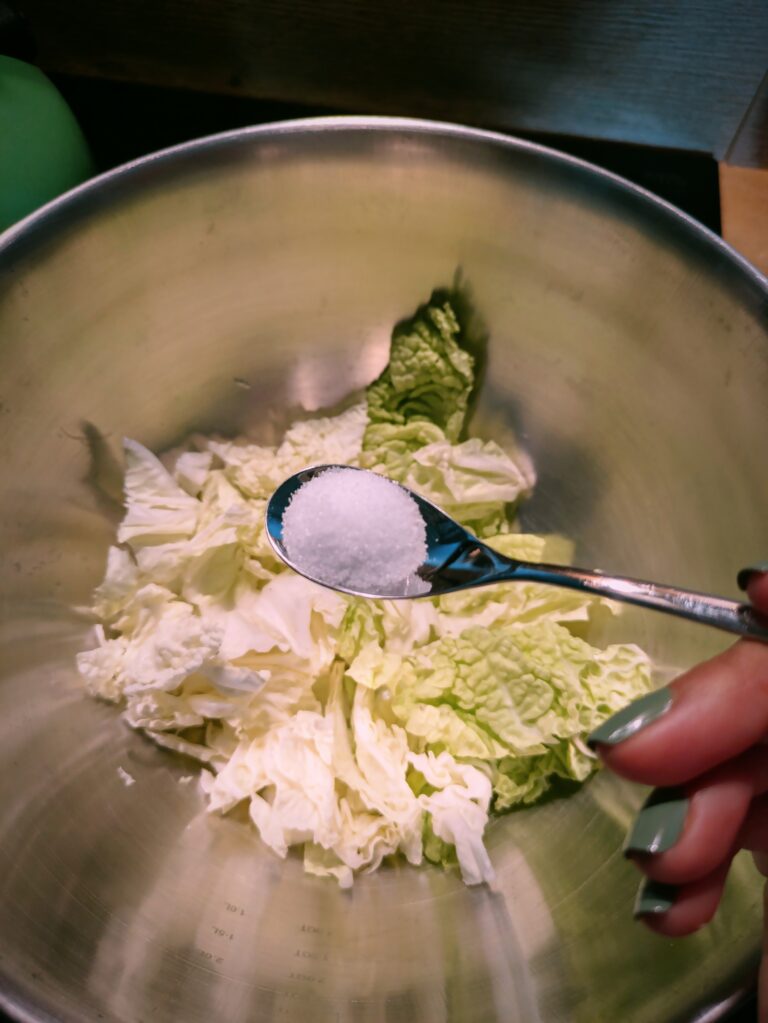
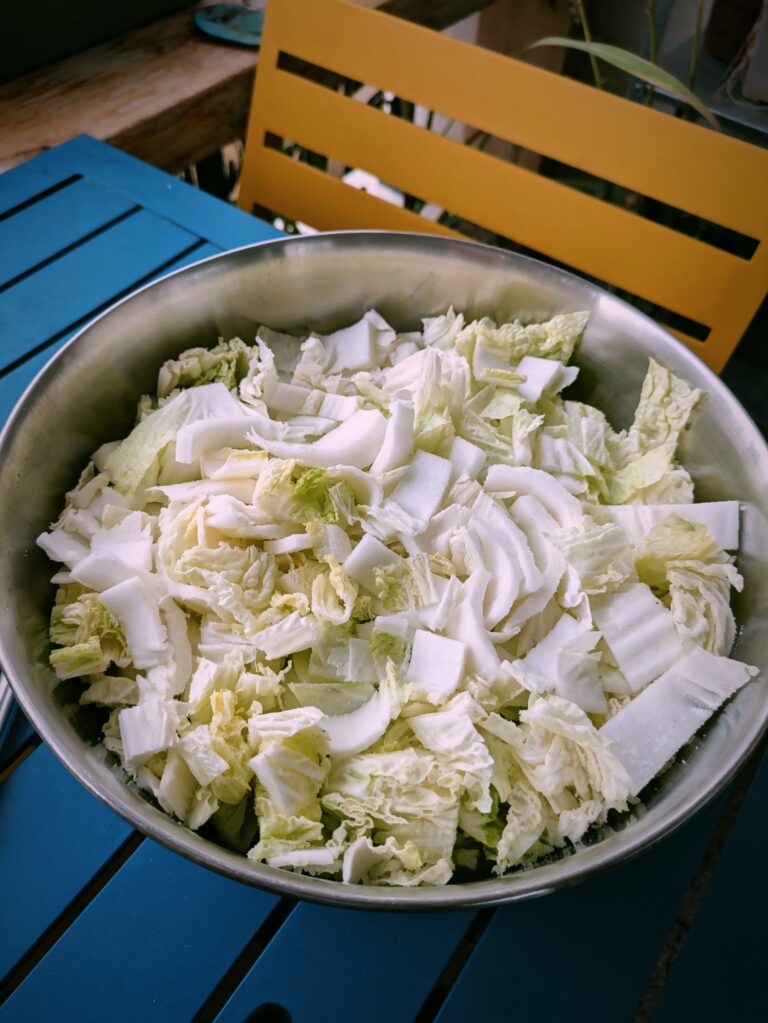
2. Make the rice paste
In a small pot, whisk rice flour (or cornstarch) with about 1/2 cup water.
Heat on low, stirring until it thickens into a smooth paste. Let it cool.
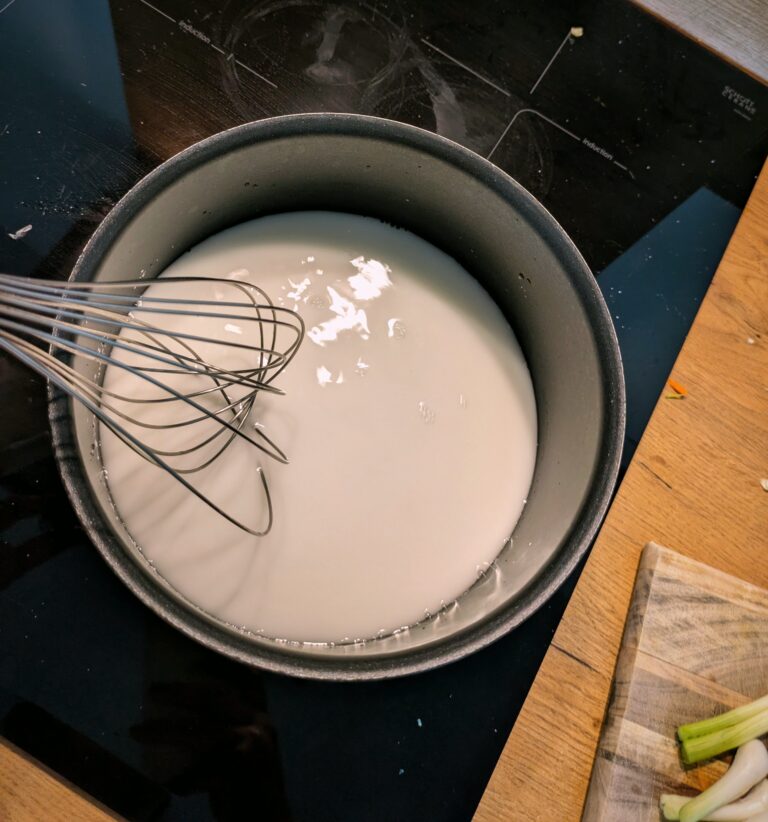
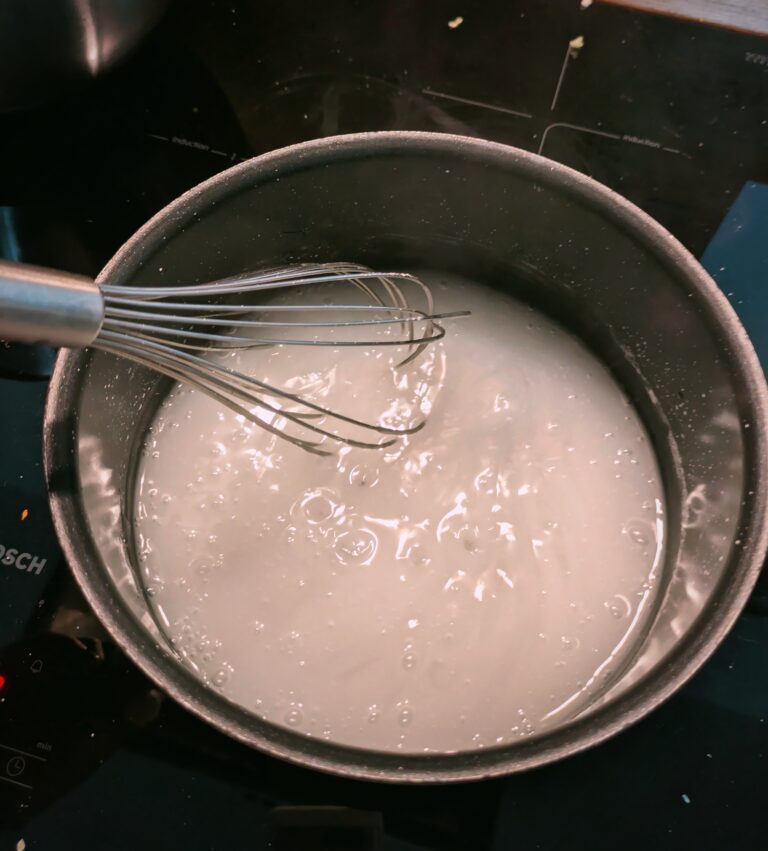
3. Prepare the spice mix
In a blender, blend the pear (or apple), garlic, ginger, fish sauce, and cooled paste.
Stir in the gochugaru. (Optional: add sugar if needed)
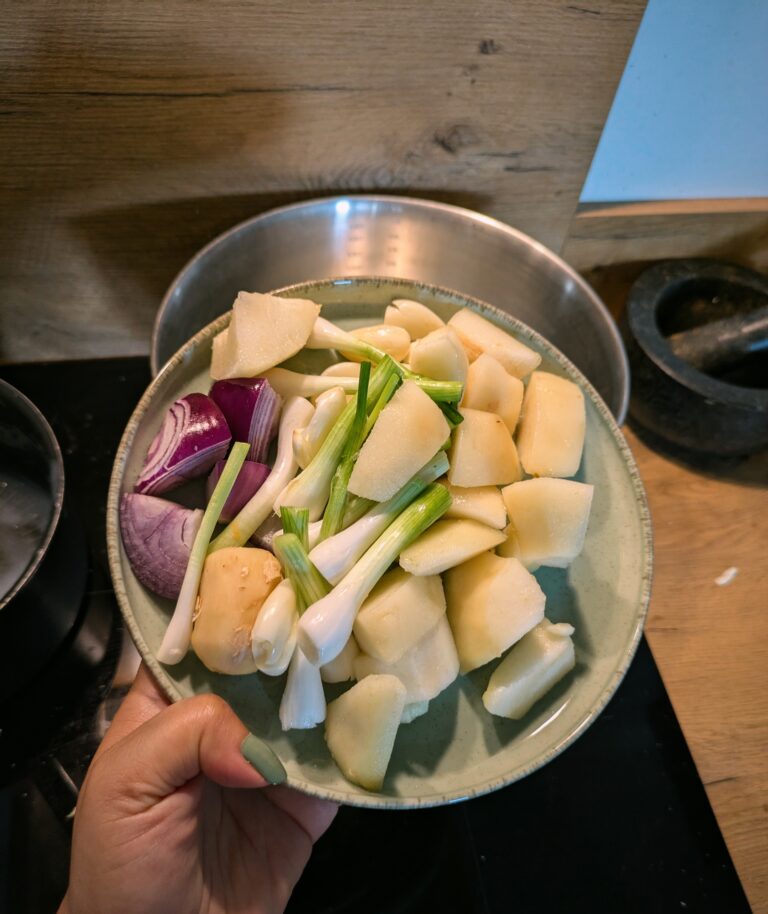
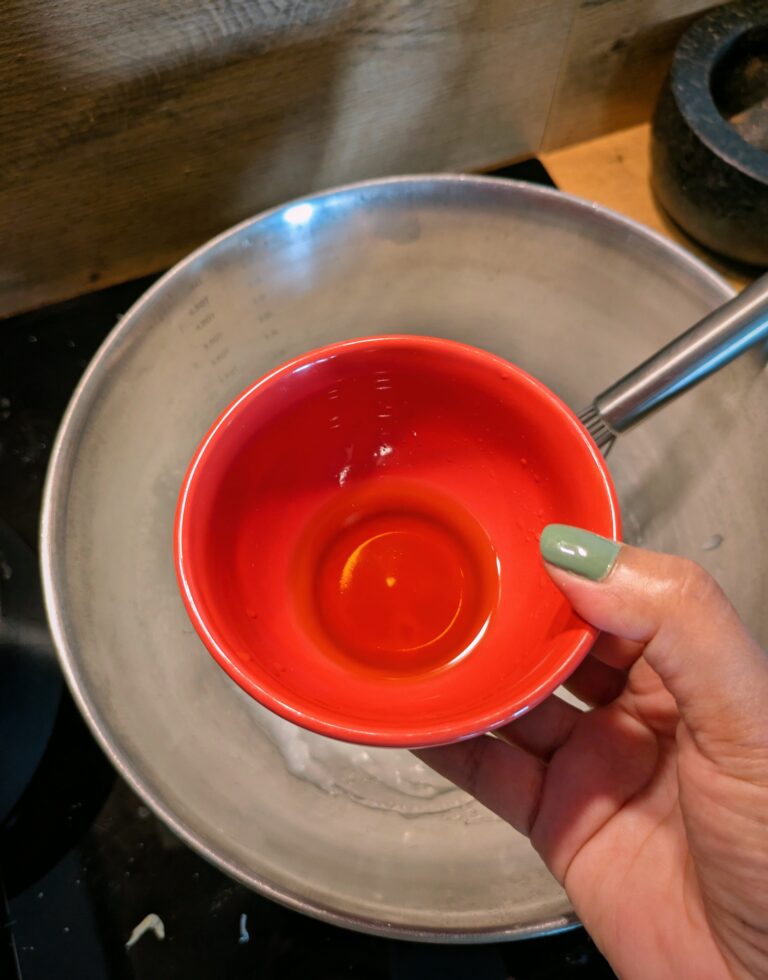
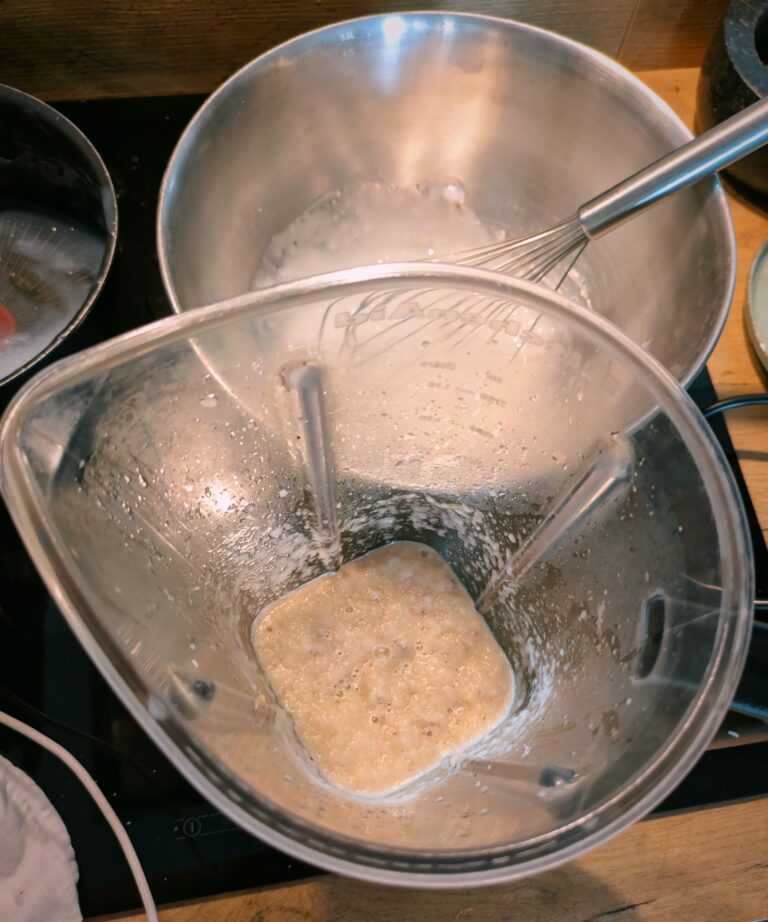
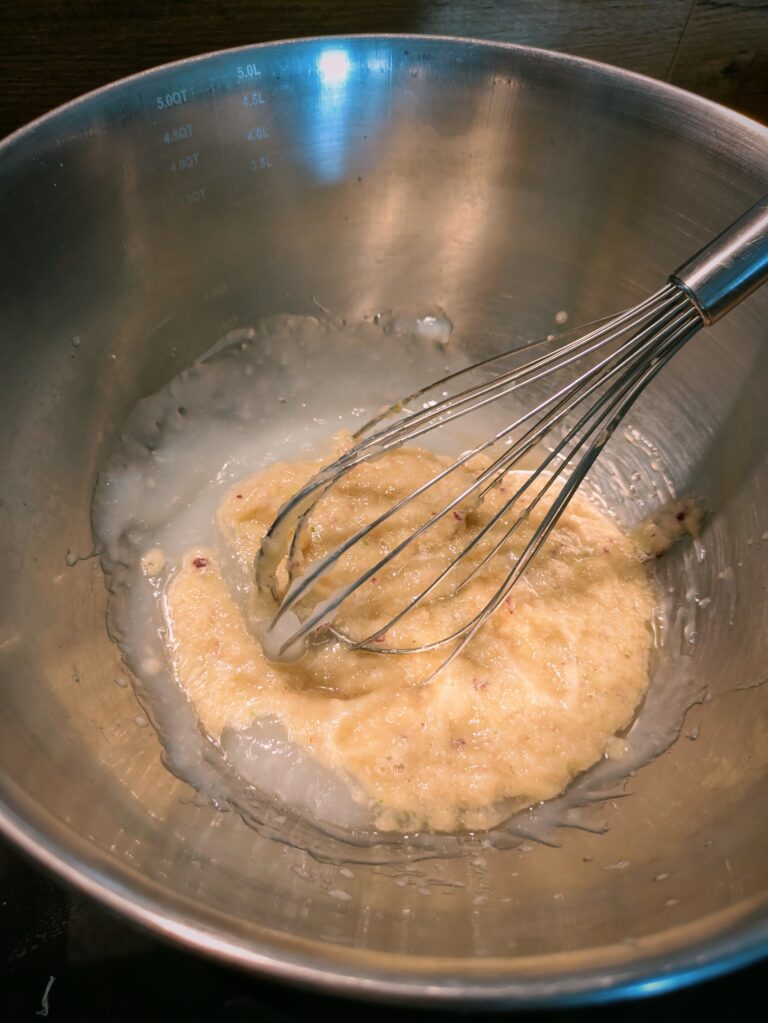
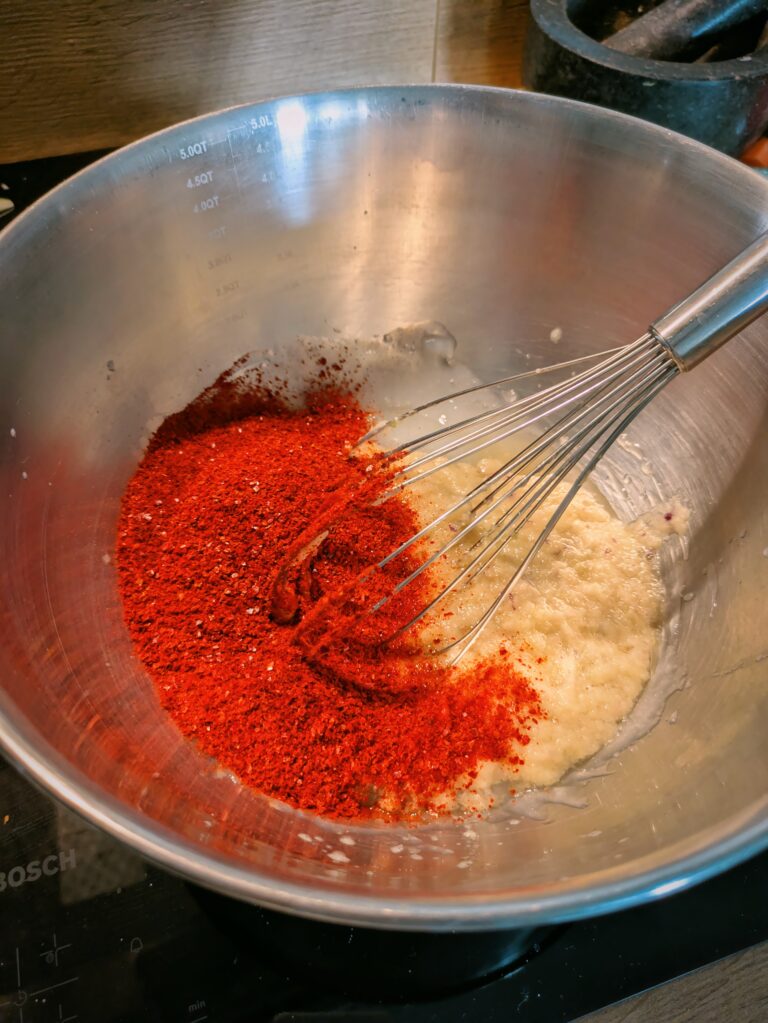
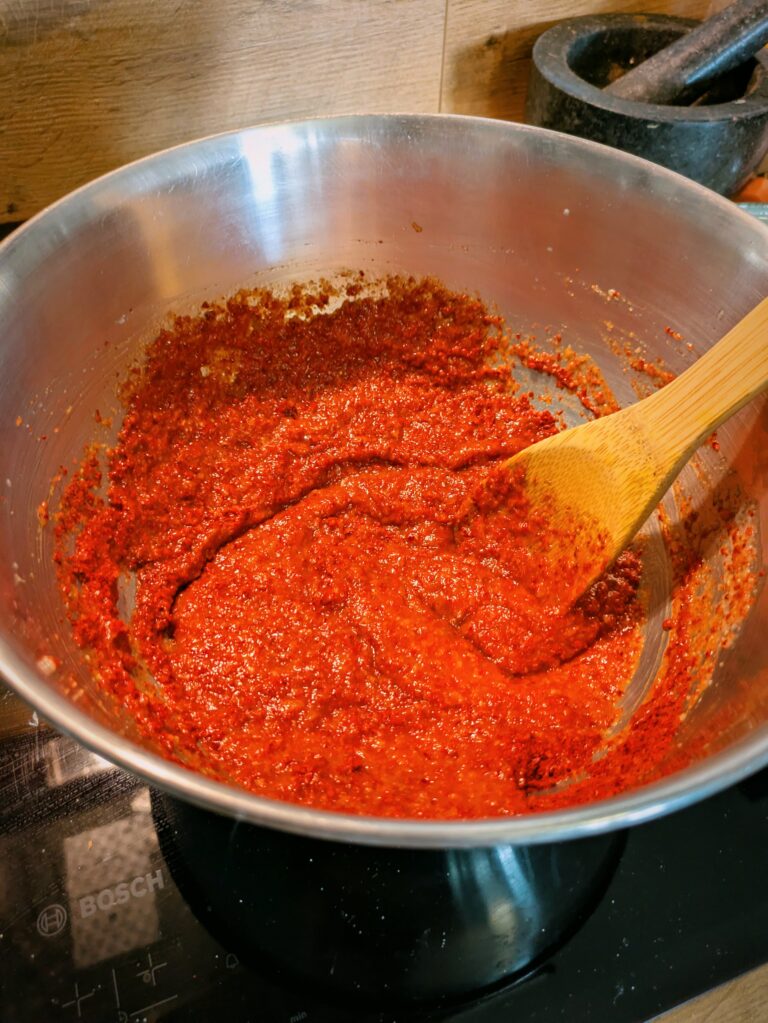
4. Mix it all
In a large bowl, toss the cabbage, carrot, radish, and spring onions.
Add the spice mix and massage everything together using gloves until evenly coated.
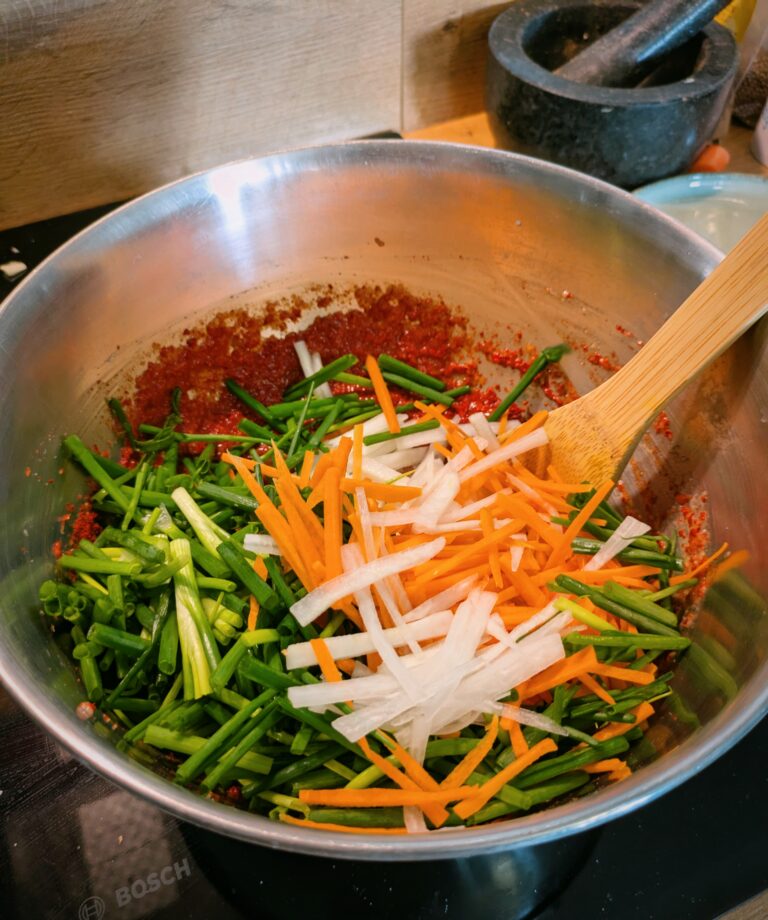
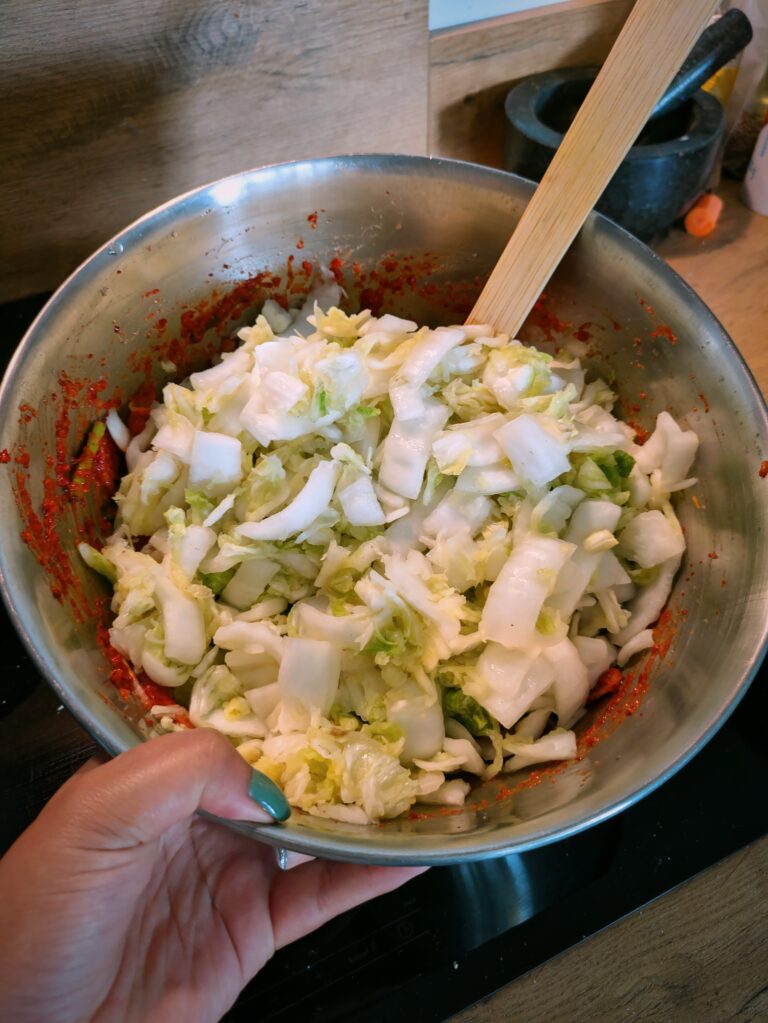
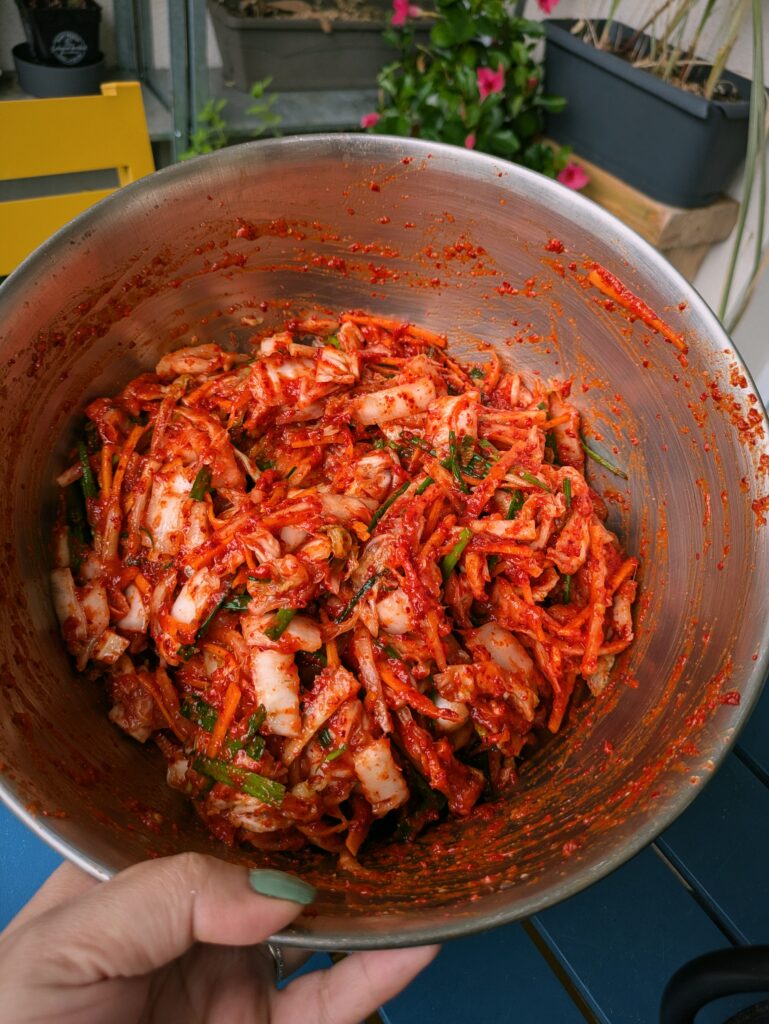
5. Pack & ferment
Pack into a clean jar, pressing down to remove air bubbles. Leave 2–3 cm space at the top.
Cover loosely or with a breathable lid.
Let it ferment at room temperature for 2–3 days. Taste daily. Once it’s tangy, refrigerate.
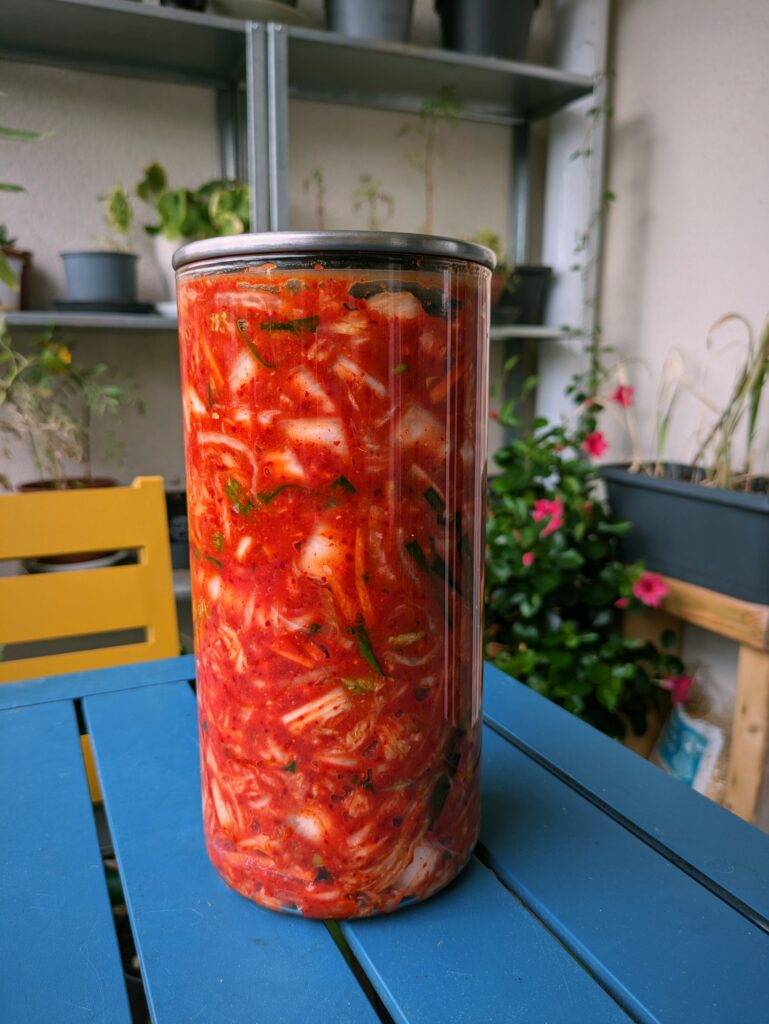
🍽️ How I Use My Kimchi
With daal bhat (Nepali lentil and rice)
Mixed into fried rice or egg noodles
On toast with melted cheese
Added to soups or thukpa
Even inside dumplings (momos!)
💡 Tips for Success
Use ripe pears for natural sweetness—no sugar needed in most cases.
Store in glass jars, not metal.
Don’t overfill the jar; fermentation needs breathing space.
The flavor deepens over time—wait at least a week before digging in, if you can!
💬 Final Thoughts
This kimchi recipe has become part of my regular cooking, even though I live far from Korea. It’s a dish that connects me to my roots in Nepal, while embracing new flavors and techniques I’ve learned in France.
If you’re curious about fermentation or simply want a punch of flavor in your meals—this homemade kimchi recipe is a great place to start.

